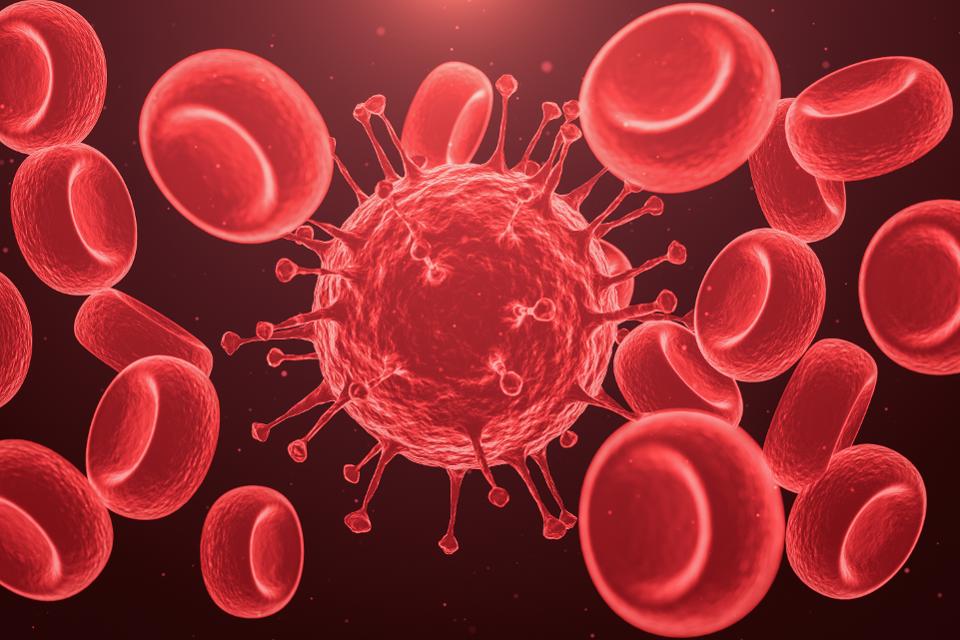COVID-19 Blood Clots: Should Blood Thinners Be Used As Adjuvant Treatment For COVID-19?
Source: COVID-19 Blood Clots May 20, 2020 5 years, 8 months, 1 week, 6 days, 4 hours, 11 minutes ago
COVID-19 Blood Clots: SARS-CoV-2 infections first emerged as a typical respiratory disease causing symptoms such as fever, sore throat, dry cough, and potentially lung infection or pneumonia and a build-up of fluid in the lungs making it difficult to breathe. However later it was found that Cytokine Storms emerged as a complication from the disease and these severe inflammatory reactions can cause various severe medical conditions, some lethal.

Now it has emerged that 30-70% of COVID-19 patients admitted to intensive care units, developed blood clots. These rates of blood clotting appear to be much higher than what is expected when compared with individuals who are hospitalised for reasons other than COVID-19.
https://www.sciencedirect.com/science/article/pii/S0049384820301201 and
https://onlinelibrary.wiley.com/doi/epdf/10.1111/jth.14869
It was observed that blood clots in the veins often present in the legs (deep vein thrombosis) and are often dislodged into the lungs , also called pulmonary embolism.
https://onlinelibrary.wiley.com/doi/epdf/10.1111/jth.14869
About twenty-five percent of COVID-19 patients admitted to intensive care will develop a pulmonary embolism in which an artery in the lungs gets blocked.
Typically, arterial blood clots associated with COVID-19 can lead to strokes, including in younger patients, with potentially severe or lethal outcomes.
Furthermore COVID-19 appears to cause tiny blood clots that can block small vessels in the lungs. These "micro" blood clots may be a key reason why patients with COVID-19 often have very low oxygen levels.
It was also found that blood clots appear to be associated with a higher risk of dying from COVID-19. Also elevated markers of blood clotting are associated with an increased risk of admission to the intensive care unit and a worse prognosis overall.
As a result of the rate of blood clotting is so high, all patients admitted to hospital with COVID-19 should receive a low dose of blood thinner medication to prevent blood clots. This prophylactic dose of blood thinner is standard across most hospitals in the United States.
https://www.onlinejacc.org/content/early/2020/05/05/j.jacc.2020.05.001
Despite the use of low-dose blood thinners, many blood clots in COVID-19 are still occurring. As such, it is a question of intense discussion whether individuals admitted to hospital with severe COVID-19 should receive a higher-than-usual dose of blood thinners to prevent blood clots and improve clinical outcomes.
We Need Your Help. Please Help To Sustain This Website And All Our Ini
tiatives To Propel Research By Donating. https://www.thailandmedical.news/p/sponsorship
A new study from the United States suggests patients admitted to hospital and prescribed full dose blood thinners had a better chance of survival and lower chance of needing a ventilator.
https://www.onlinejacc.org/content/early/2020/05/05/j.jacc.2020.05.001
This finding however has to be confirmed before the higher dose can be generally recommended. Several research studies are underway in Europe, the UK and elsewhere to test and answer this question definitively.
Many other blood thinner treatments are also being evaluated in people with COVID-19. Aspirin is commonly prescribed to people who are at high risk of strokes or heart attacks. There are now studies underway examining if aspirin can reduce risk of blood clotting in people with COVID-19. In the US, some stronger clot-busting medications are also being tested in people with severe COVID-19.
https://www.nejm.org/doi/pdf/10.1056/NEJMc2009787?articleTools=true and
https://clinicaltrials.gov/ct2/show/NCT04365309 and
https://www.facs.org/-/media/files/covid19/umiami_study_uses_of_coagulopathy.ashx
Blood thinners usage are not without risk as this treatment can increase the risk of bleeding. So without definite evidence to support the benefit of high dose blood thinners in all hospitalized patients with COVID-19, the decision to use higher doses of blood thinning medication outside of a clinical trial must be made on an individual basis.
Should One Take Aspirin As A Sort Of Prophylaxis?
To date there is no evidence aspirin or other blood thinners should be taken to prevent blood clots in the general population. Also, there is no evidence blood thinners are required to prevent blood clots for people with mild COVID-19 who are isolating at home. Because blood thinners can cause bleeding, they should not be taken unless prescribed by a doctor.
https://www.ncbi.nlm.nih.gov/pmc/articles/PMC3086018/ or
https://www.ahajournals.org/doi/full/10.1161/01.STR.0000174189.81153.85 or
https://www.acc.org/latest-in-cardiology/ten-points-to-remember/2019/03/07/16/00/2019-acc-aha-guideline-on-primary-prevention-gl-prevention
However It is important for individuals who are taking blood thinners for other reasons such as to prevent cardiovascular issues, to continue taking these medications as normal, particularly if they are diagnosed with COVID-19.
As far as using blood thinners whether in home or hospital settings are concerned, individuals should wait till more research studies and clinical trials indicate what are the best solutions and treatment protocols.
For more about
COVID-19 Blood Clots issues and treatment protocols, keep logging to Thailand Medical News.
We Need Your Help. Please Help To Sustain This Website And All Our Initiatives To Propel Research By Donating. https://www.thailandmedical.news/p/sponsorship
